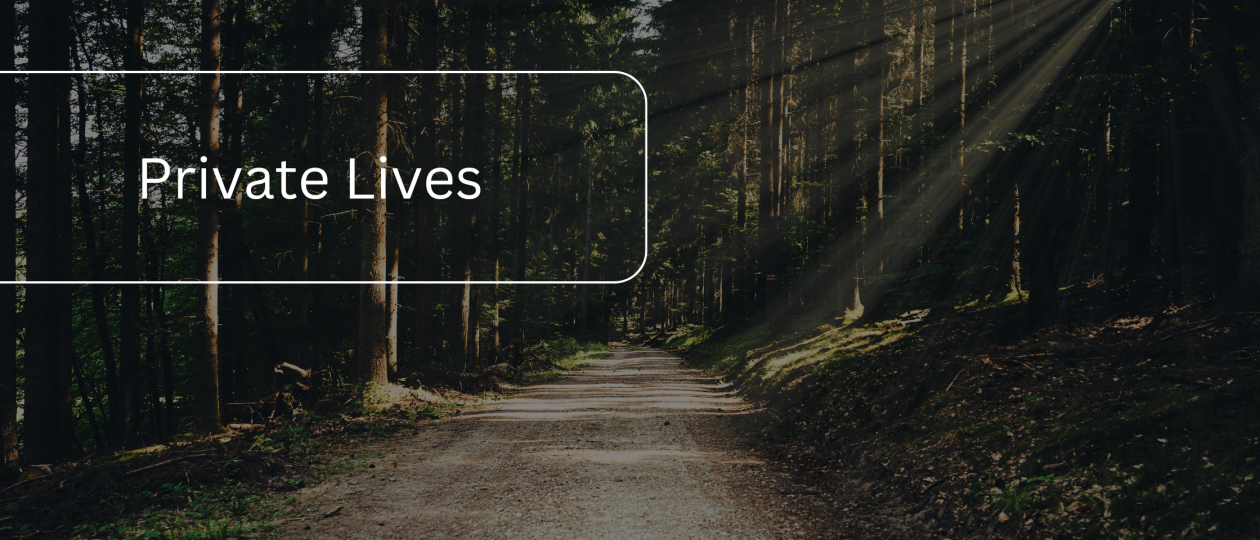Private Lives
There’s a curious fact I’ve observed about myself and others: oftentimes, we struggle the most when things are easiest.
Let me be more specific. When there’s a crisis at hand, when a loved one is in need or the whole family is going through a rough time, most people will step up. Because we’re needed. There’s a certain joy and power in being needed, even when the task itself is unpleasant. In a way, it feeds us.
Speaking for myself (although I’ve observed this in many others as well), it is the slow times when I tend to get myself into trouble. The times when there are no special demands on my energy, and I feel that I can do as I like—and maybe that’s the problem. There’s a broad cultural sense that a person’s private life is their own, and they can do whatever they like as long as they’re not hurting anyone. Now, of course I’m not opposed to anyone having a private life, but I think the notion that anything goes so long as we’re not hurting others tends to do us more harm than good.
C.S. Lewis once compared us to a fleet sailing in formation, each of us the captain of our own ship. He said that we each had two responsibilities: first, to stay in formation and keep from crashing into each other, and second, to keep our vessel in good order. It is no good saying that all we have to do is steer correctly, he said, if our ship is such a crazy old tub that it cannot be steered at all.
A few weeks ago, I wrote about my concept of good rest, that we should look at it not just as a reprieve from responsibility (or accountability), but as an opportunity to nourish ourselves. To build that which we would put out into the world. That may seem like a great deal of freedom to give up… except that what do we really get out of this kind of aimless freedom? When we give ourselves permission to do whatever we want, what we end up doing is usually bad for our spiritual, emotional, or physical health, at least speaking for myself.
No, it’s clear to me that though our time may be private, it does not free us from the responsibility—or the gift—of devotion to what is right and good. In times gone, some warrior cultures incorporated a sense of efficient rest into their philosophy of upright living. This may be a useful way of thinking about it. It’s not a question of giving up our rest to continue working for our good, but of learning to rest for our good.
After all, living in love in the present moment doesn’t only mean in our more active moments, but it also doesn’t mean that we’re supposed to grind ourselves out by trying to exert ourselves all the time. A question for next week, perhaps. Or maybe just to dwell on in the meantime: why does it look like for you to rest in love in the present moment?
Have a blessed, wonderful day!
Dr. Alex Loyd



